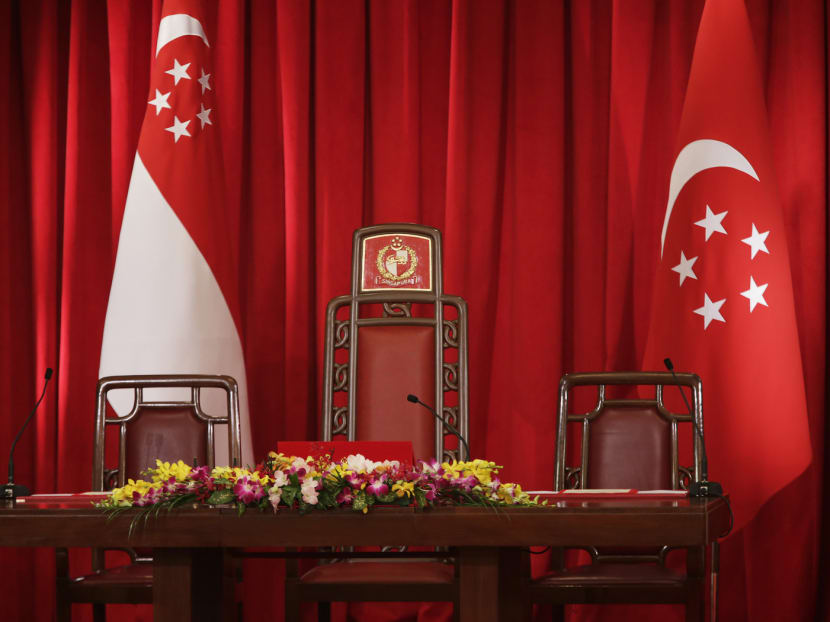Navigating the new terrain of a reserved election
The formalities for Singapore’s fifth presidential election will commence this week.
The formalities for Singapore’s fifth presidential election will commence this week.
From June 1, presidential hopefuls can apply for both the Certificate of Eligibility and the Community Certificate to contest in the September 2017 presidential poll, which is also reserved for the Malay community for the first time.
The deadline for the applications of the eligibility and community certificates is the fifth day after the issuance of the writ of election.
Prime Minister Lee Hsien Loong may issue the election writ as late as the latter half of August, or even in early September.
Thus, it may be another three months before Singaporeans will know who are seeking to win the mandate to be head of state.
Several names have been bandied about in the media as possible candidates, including Speaker of Parliament Madam Halimah Yacob and former Speaker of Parliament and Cabinet Minister Abdullah Tarmugi.
Since it is important for Singaporeans to get to know the presidential hopefuls as well as they can, prospective candidates ought to flag their intentions to contest sooner rather than later.
As the next election is a reserved one, all the more voters should specially consider a candidate’s commitment and contributions to multiracialism.
This should be part of the electorate’s assessment of a candidate’s overall merit and suitability to be elected head of state, in addition to professional qualifications, expertise and experience.
A Special Mechanism
Last year, the Constitutional Commission, chaired by Chief Justice Sundaresh Menon, reviewed selected aspects of the Elected Presidency, including ensuring that minorities are periodically elected as President. After public consultations and hearings, the Commission proposed a hiatus-triggered reserved election mechanism, which the Government accepted.
When a member from any racial group (namely, Chinese, Malay, Indian and other communities) has not occupied the President’s office after five continuous terms (each full term is six years), the next presidential election will be reserved for a candidate from that racial group.
Five presidential terms have passed (since President Wee Kim Wee first exercised the powers of the Elected President in 1991) without a Malay being elected as President, thus triggering the reserved election later this year. However, no amount of constitutional engineering can remove a racial or even a racist mindset and disposition in electoral behaviour. The reserved election is not the silver bullet in our quest to ensure that no ethnic group is shut out of the presidency.
The reserved election helps ensure that the presidency is not only accessible, but is seen to be accessible to all the major racial communities in Singapore.
It functions as an inter-generational safeguard for minority representation, while not going as far as mechanically rotating the presidency among the major races, which can smack of tokenism and affect the legitimacy of the President’s decisions in the exercise of his custodial powers.
Hence, the reserved election can be the platform on which candidates and the electorate alike can be nudged or incentivised to think of how their electoral campaign and behaviour can further the cause of multiracialism in Singapore. The reserved election should not be an end in itself, but also a means of recognising our diversity and how we can make it work for us.
Will there be a contest this time? Probably not. The field is relatively small, and the likelihood of two candidates from the Establishment is low.
However, a contest will go a long way towards sensitising Singaporeans on the centrality of the Elected President in our system of constitutional government.
A contest will also boost the legitimacy of the presidency, since the democratic choices of Singaporeans are manifestly exercised. Furthermore, as this is the first-ever reserved election, it can contribute immensely towards our understanding of how the reserved election enhances our multiracialism.
Will the ongoing legal challenge on the constitutionality of the reserved election cause a delay in the election? Probably not. The High Court will be mindful of the election timeline and is likely to expeditiously resolve any legal uncertainty and facilitate the election to be held as scheduled.
When Singapore attained self-government from the British in 1959, and then in the throes of our traumatic independence from Malaysia in 1965, having Mr Yusof Ishak, a Malay, as Singapore’s first Yang di-Pertuan Negara and then President, was a powerful symbol of the fledgling nation-state’s commitment to inclusiveness and multiracialism. That remains as pertinent today as it was then.
Come this September, even as Singapore is very likely to inaugurate its first Malay President since 1970, we must resolve to make the forthcoming presidential election the first and last reserved election.
ABOUT THE AUTHOR:
Eugene K B Tan is an associate professor at the Singapore Management University School of Law.







